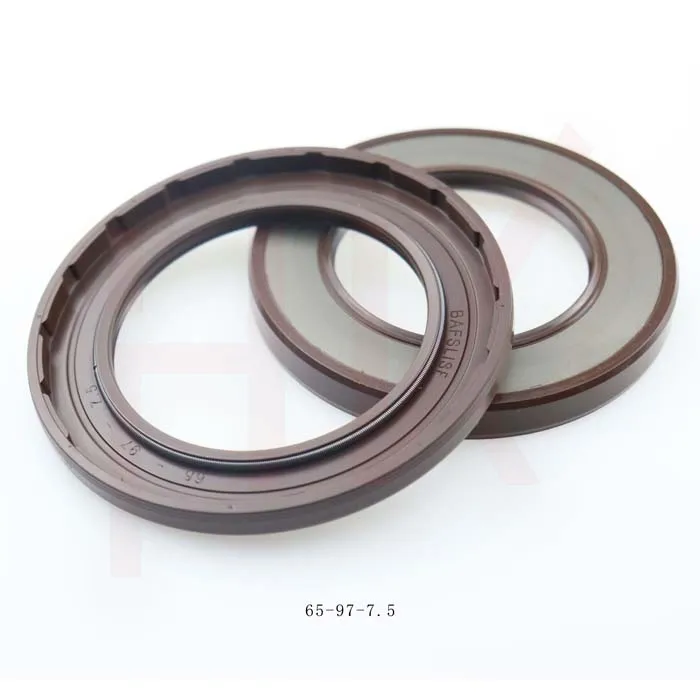Desemba . 05, 2024 15:09 Back to list
excavator seal
The Importance of Excavator Seals in Construction Equipment
Excavators are indispensable machines in the construction and excavation industries. They are primarily used for digging, lifting, and moving materials, making them crucial for projects ranging from building sites to mining operations. However, the performance and longevity of an excavator greatly depend on its components, particularly seals. This article explores the significance of excavator seals, the types available, and best practices for maintenance.
Understanding Excavator Seals
Excavator seals are critical components that prevent fluid leaks and protect internal parts from contaminants. These seals play a vital role in maintaining hydraulic pressure, which is essential for the efficient operation of the excavator's arm, bucket, and other appendages. If even a minor leak occurs, it can lead to a decline in performance, increased operational costs, and potential damage to the machine.
Types of Excavator Seals
There are several types of seals used in excavators, each designed for specific functions
1. Hydraulic Cylinder Seals These seals are found in the hydraulic cylinders and are responsible for keeping hydraulic fluid contained. They prevent leaks during the upward and downward movements of the excavator's arm.
2. Rotary Seals Used in the swivel part of excavators, rotary seals allow for smooth rotation of the upper structure while preventing hydraulic fluid from escaping.
3. Dust Seals These seals are crucial for protecting the hydraulic components from dirt, mud, and debris. They help extend the life of the seals and hydraulic systems by keeping contaminants out.
4. O-Rings O-rings are used to seal static and dynamic connections in hydraulic systems. Their flexibility allows them to maintain a tight seal even with the pressure fluctuations common in excavators.
The Role of Seals in Performance
excavator seal

The integrity of excavator seals directly affects the machine's performance. Claims for enhanced productivity are linked to well-maintained seals. Efficient seals ensure that hydraulic energy is used effectively, leading to faster and more precise operations. Conversely, degraded or damaged seals can result in slow response times, increased fuel consumption, and reduced lifting capability. Regular inspection and maintenance of seals are essential for optimal performance.
Maintenance Best Practices
To ensure the longevity and effectiveness of excavator seals, operators should adhere to some best practices
- Regular Inspections Routine checks for wear and tear or visible damage on seals can catch issues before they escalate. It is advisable to inspect seals after each shift or at scheduled service intervals.
- Clean Work Environment Keeping the working area clean and free from debris minimizes the risk of contaminants entering seals. Operators should avoid working in muddy or dusty conditions whenever possible.
- Use Quality Parts When replacing seals, always opt for high-quality, manufacturer-recommended parts. Low-quality seals may not withstand operational pressures and can lead to recurrent leaks.
- Proper Installation Frequent seal failures can occur due to improper installation. Following manufacturer guidelines during the installation of new seals is crucial.
- Monitor Fluid Levels Keeping a close eye on hydraulic fluid levels can help identify potential leaks. If fluid levels drop unusually fast, it could indicate a seal failure.
Conclusion
Excavator seals are fundamental to the efficient operation and longevity of these powerful machines. Ensuring that seals are well-maintained not only enhances performance but also reduces the risk of costly repairs and downtime. By understanding the significance of excavator seals and implementing best practices for their maintenance, operators can maximize productivity and ensure that their machines remain reliable assets in any construction project. Investing time and resources into seal maintenance proves essential for maintaining the integrity of excavators and the success of construction operations.
-
TCN Oil Seal Metal Ring Reinforcement for Heavy Machinery
NewsJul.25,2025
-
Rotary Lip Seal Spring-Loaded Design for High-Speed Applications
NewsJul.25,2025
-
Hydraulic Cylinder Seals Polyurethane Material for High-Impact Jobs
NewsJul.25,2025
-
High Pressure Oil Seal Polyurethane Coating Wear Resistance
NewsJul.25,2025
-
Dust Proof Seal Double Lip Design for Construction Equipment
NewsJul.25,2025
-
Hub Seal Polyurethane Wear Resistance in Agricultural Vehicles
NewsJul.25,2025
-
The Trans-formative Journey of Wheel Hub Oil Seals
NewsJun.06,2025
Products categories
















